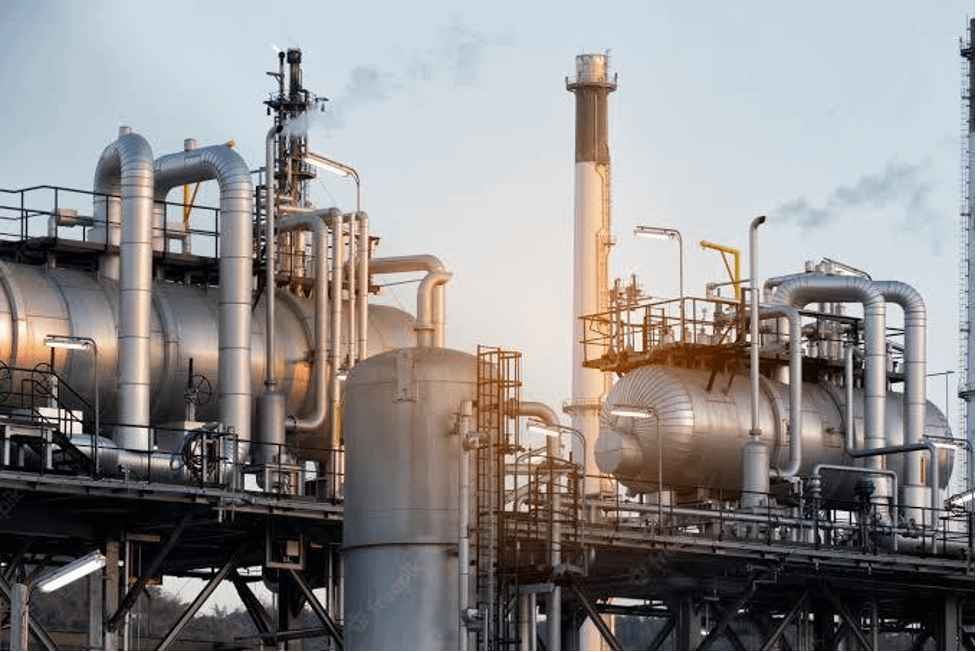Oil refining and petrochemicals are essential for global economies and our modern-day societies. Petrochemicals are chemical substances made from petroleum and natural gases. They can also be found in plastics, rubber, cosmetics, nylons, and medical supplies. In this article, we will investigate oil refining and petrochemical industry overview.
What is the meaning of a petrochemical refinery?
Oil refining is transforming and refining crude oil into useful products like gasoline, diesel fuel, asphalt base, fuel oils, heating oil, kerosene, liquefied petroleum gas, and petroleum naphtha.
The process of oil refining is crucial in petrochemical production. Petrochemicals are chemical substances made from crude oil (petroleum) and natural gases that produce petrochemical products, including ethylene, propylene, and benzene.
After petroleum is transformed into oil refineries, the outcome of the process is raw materials or feedstock, such as naphtha, that are used to produce petrochemicals combined with natural gases.
The difference between petrochemical refining and petroleum refining

Petrochemical refining takes place after oil refining, as petrochemical products are obtained from petroleum refining. Refining processes are used mainly in petroleum refineries. Petrochemical facilities are not necessarily refineries, although they may include them. Refining crude oil can take place outside of a petrochemical plant.
The basic crude oil refining process includes distillation, cracking, reforming, blending, and treatment.
- Distillation refers to the separation of heavy and lighter fossil fuels.
- Cracking comprises maximizing the use of heavy oils by breaking them into more valuable lighter fluids.
- Reforming involves leveraging the amount of gasoline produced from crude oil by rearranging the molecules in the produced chemicals into other useful ones, such as gasoline.
- The blending process mixes the refinery products to obtain finished petroleum fuels. For example, gasoline is blended to achieve octane standards to meet specific engine needs.
- The final process of treating petroleum products involves removing toxic chemicals like sulfur from gasoline and other products and ensuring safe product use and distribution.
The Integration of Refining and Petrochemicals
The combination of a treatment facility and petrochemical complex suggests distinguishing collaborations and improving them for functional and monetary increases where they offer and trade many streams like feedstocks, results, and utilities. Integrating refining and petrochemicals provides optimal molecule management for a better return on investment. Treatment facilities have generally been pointed toward leveraging fuels as end-products and simultaneously using open doors for separating higher worth.
Refineries in Egypt
Petrochemical refining is a widely conducted activity in Egypt. Nine out of ten oil refineries in Egypt are run by the government. This arrangement implied that interests in petroleum treatment facilities never compared to unrefined petroleum extraction ventures, which had consistently depended on global firms like Apache and BP.
Some of these Egyptian refineries include:
- Cairo Oil Refining Company (CORC): looking at refining capacity, CORC is referred to as the largest refinery in Egypt. It holds two refineries, one in Cairo and the other in Tanta, and the entirety of its shares.
- Egyptian Refining Company (ERC): Contrary to other refineries in Egypt, ERC is run by the private sector, which holds 76.2% of its shares. Its biggest shareholder is Qatar Petroleum International. ERC has had a long ongoing cooperation agreement with the state-owned refinery CORC.
Does Egypt have the biggest oil refiner in Africa?
With ten refining companies and 12 refineries, Egypt is Africa’s largest oil refiner. This contrasts with South Africa, which is in second place and has six refineries, as stated in a 2015 Oil & Gas Journal article.
According to the online publication Egypt Oil & Gas, Egypt’s oil refining business might have been much greater had the public authority stuck to constructing a petroleum treatment facility every five years since 2000 to fulfill rising demand. Since then, only one was built, the Egyptian Refining Company (ERC), while redesigns have pushed Egypt’s most extreme oil refining ability to 732,550 barrels a day toward the end of 2016, as per the Egyptian General Petrol Organization (EGPC).
What is the new refinery project in Egypt?
Petrochemical refining projects have increased in the last period, pushing the industry forward. Notable companies behind these industrial projects include leading Egyptian petrochemical company Anchorage Investments.
The company recently announced to begin construction of its new petrochemical facility in Suez Canal, Egypt. The project, named Anchor Benitoite, is one of Anchorage Investments’ largest endeavors as it hopes the facility will be a regional turnkey point in the industry for Egypt.
Top 5 most known refineries in the world
Petrochemical and oil refineries are crucial to producing our everyday goods and services. They play a significant role in the energy market by transforming crude oil into valuable products. Some of the largest refineries in the world include:
- Anchorage Investments (Egypt)
- Jamnagar Refinery (India)
- Paraguaná Refinery Complex (Venezuela)
- SK Energy Ulsan Refinery Complex (South Korea)
- Ruwais Refinery (United Arab Emirates)
To conclude, oil and petrochemical refining are strongly related. Petroleum refining is part of petrochemicals’ production process, producing raw materials used in end-consumer products. Leading petrochemical firms like Anchorage Investments grow the industry through building state-of-the-art petrochemical projects such as their most recent, Anchor Benitoite.
